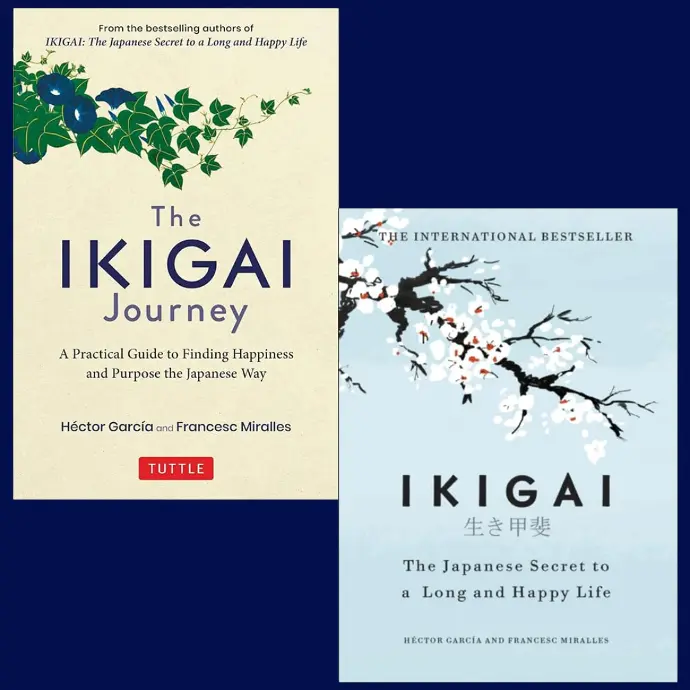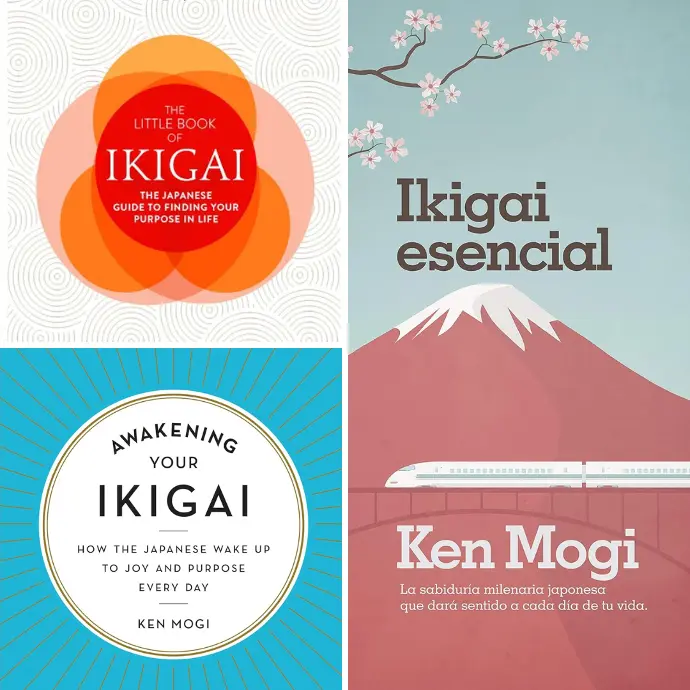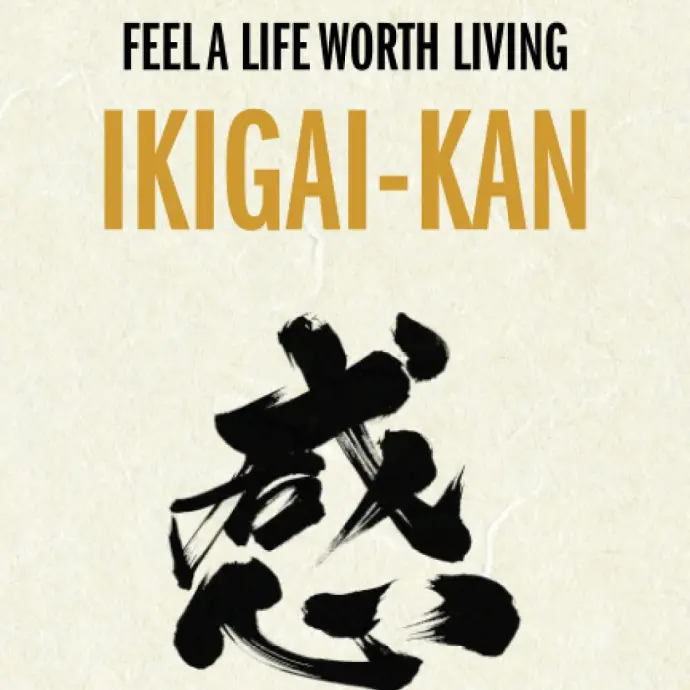Ikigai and ADHD:
A Powerful Tool for Neurodivergent Well-Being
You may have read one of my blog posts, in which I talked about how identifying your ikigai can actually help you live successfully with ADHD. In case you haven't, here's the link. However, here I'll discuss the basics and offer some resources to help you on your journey.
Ikigai is a Japanese term that loosely translates to "the reason for being." However, did you know that ikigai can be applied in managing ADHD?
Discover How Ikigai Can Help You Thrive with ADHD
There are several ways in which ikigai can be applied in cases of ADHD, and we'll cover a few of them here for you.
- Self-Discovery: Ikigai encourages self-reflection to uncover your passions, values, and strengths. This can help you identify activities and goals that truly resonate with you.
- Strengths-Based Focus: By recognizing and leveraging your unique talents, ikigai can boost self-esteem and confidence, counteracting negative self-talk often associated with ADHD.
- Goal Setting and Motivation: Ikigai provides a framework for setting meaningful goals that align with your values and passions, increasing motivation and perseverance.
- Structure and Routine: Establishing routines and habits based on your ikigai can help manage impulsivity and distractibility, common challenges for individuals with ADHD.
- Resilience and Growth: Embracing ikigai can foster resilience and adaptability, helping you overcome obstacles and challenges on your journey to self-discovery and fulfillment.
Below are three books on ikigai that I think will be paradigm-shifters for you. Identifying your ikigai can be tremendously valuable in the well-being of neurodivergent folks who want to improve their quality of life.
Your Journey with Ikigai and ADHD
By exploring these resources, you're taking a positive step towards embracing your unique strengths and potential. Remember, your journey is unique, and what works best may vary. Approach these tools with curiosity and self-compassion. Your support through using these affiliate links – which come at no extra cost to you – helps us continue our mission of empowering neurodiverse individuals across cultures.
For that, we're deeply grateful.

Héctor García & Francesc Miralles on ikigai
So, you've probably heard of "Ikigai: The Japanese Secret to a Long and Happy Life" by Héctor García and Francesc Miralles. It's the book that put ikigai on the map for a lot of folks. They look at ikigai through the lens of those super-long-lived people in Okinawa, Japan. You know that Venn diagram with four circles - what you love, what you're good at, what the world needs, and what pays the bills? That's their take on ikigai. While I don't believe it's *really* ikigai, it's still a cool idea, and they've got actionable tips for living a more purposeful life.
García and Miralles then wrote a follow-up, "The Ikigai Journey," which is like a workbook with 35 chapters of exercises and tips. They use three Japanese cities as metaphors for past, present, and future, which is a pretty creative way to look at applying ikigai to your life.
Here are the links for "Ikigai: The Japanese Secret to a Long and Happy Life":
And these are the links for "The Ikigai Journey"
Finally, why not go all out and buy the two-book bundle?

Ken Mogi on ikigai
In "The Little Book of Ikigai: The secret Japanese way to live a happy and long life," Ken Mogi, PhD, researcher in areas including brain science, philosophy, and education. presents a captivating exploration of the Japanese concept of ikigai, which translates to "a reason for being."
In other markets, such as the US, it is often referred to as "Awakening Your Ikigai: How the Japanese Wake Up to Joy and Purpose Every Day," but the core content of the book remains focused on the principles of ikigai and how they can lead to a fulfilling life. (Here's the link if you'd like to read it in Spanish.)
This insightful book introduces readers to the five pillars of ikigai: starting small, releasing yourself, harmony and sustainability, the joy of little things, and being in the here and now. All so helpful to folks with ADHD.
Mogi, a renowned neuroscientist, weaves together personal anecdotes and cultural references, encouraging readers to find purpose and happiness in everyday moments. I recommend this book for anyone seeking a deeper understanding of what gets them up in the morning, whether you're neurodivergent or not.

Nicholas Kemp on ikigai
Full disclosure here, I learned about ikigai with my now "ikigai brother" Nick Kemp. Thanks to him, I learned ikigai isn't some magical Okinawan secret to living forever, and it's definitely not about finding your dream job through a fancy Venn diagram. Nope, it's way more interesting and sustainable than that.
In this eye-opening book, Nicholas Kemp, a real-deal Japanologist, digs into the nitty-gritty of what ikigai actually means in Japanese culture. He brings together insights from Japan's OG ikigai researcher, Mieko Kamiya – the mother of ikigai – and today's experts to give us the real scoop.
What I love about this book is how Kemp blends his firsthand experiences of living in Japan with solid research. He shows us that ikigai is this super nuanced concept that's uniquely Japanese but also totally relatable for all of us.
If you're like me and you're tired of seeing Japanese culture get oversimplified or romanticized, you'll appreciate how this book sets the record straight. It gives us the authentic cultural context we need to actually apply this wisdom to our lives.
Here's the link for the UK version of the book. If you're in the US, try this link. And for my friends in Spain, this is the link for you.
So, forget about chasing after some elusive life purpose. Ikigai is about embracing daily rituals, living your values, building real connections, and pursuing your goals with a healthy sense of "let's do this!" It's like eudaimonia and existential positive psychology had a baby, offering us a way to stay motivated and resilient when life gets tough.
Ready to ditch the "I'll be happy when..." mindset and start living a life that feels genuinely fulfilling? This book is your ticket to understanding and applying the true essence of ikigai. Trust me, it's a game-changer!
Now, let's compare these authors' views on ikigai:
First up, Ken Mogi's a neuroscientist, so he's coming at this from a more scientific angle. He sees ikigai not as one perfect intersection point, but as a whole spectrum of experiences. It's a bit more nuanced and closer to how ikigai is actually understood in Japan.
Then there's Nicholas Kemp's book as a sort of myth-buster for all those Western interpretations of ikigai. He's not buying that Venn diagram idea. Instead, he says ikigai is more about feeling than finding. He's done a ton of research and talked to Japanese experts to give us a more accurate picture of what ikigai really means in Japan.
So, while García and Miralles' books have made ikigai a household word and give you some practical exercises to try, Mogi and Kemp are taking us on a deeper dive. They're showing us ikigai as it's really understood in Japan, which is pretty different from some of the Western interpretations we've been seeing.
Each book has its strong points: García and Miralles keep it simple and actionable, Mogi gives us the science angle, and Kemp really digs into the cultural roots. If you're curious about ikigai, why not check out a few different takes? It's a pretty rich concept, and seeing it from different angles can give you a more well-rounded understanding. Plus, it's just fascinating stuff!